내가 기도할 이유, 나눔 공동체
About Sound Theology of Prayer through Reformed Theology of Prayer
I used the title, “Theology of Christian Prayer” for my book according to the president of Chongshin Seminary Dr. Hee Bo Kim. However, when I published this book some asked me, ‘how could prayer have theology? Prayer is not a theology, but it is something you do on your knees. This makes it very hard to publish the book.
While I was preparing my thesis, I carefully read everything including books and articles either starting with ‘prayer’ or finishing with ‘prayer.” It was not easy to find books or articles in Korea about the theology of prayer. I only found one or two books in English. However, nowadays we can find hundreds of books and articles on the theology of prayer. I read many books on the theology and I was able to expand my understanding on the theology. I remember what I have read. One person realized that there is theology in prayer after reading my book. I look forward to many scholars writing more books and articles on the theology of prayer and that more people will understand the theology. We will also be able to understand the will of God toward the church on earth. When you read my book, you will naturally know that I did not just write the book to explain the Lord’s Prayer. There are some who want to see my book translated into English and Japanese. I pray for this too. I have heard that many not only read my book, but also use it as a textbook of Sunday school, Youth, Young adult and small group. My intention is to let the Korean Church know that prayer has theological points. So, I would like to build my house of theology of prayer through my ministry with C.C.C. international headquarter and my mentioning of many reformed scholars opinions on the theology of prayer. When I first published ‘Theology of Prayer,’ I did not include specific contents of prayer and results of the study of prayer situations. However, I tried to emphasize the importance of correct prayers and taught about contents and the results of the study of prayer whenever I have chances to teach seminary students, college students, pastors and at conferences.
My motivation to write this book is that I became very familiar with the fact that Korean Christians pray a lot without knowing how to pray correctly. Therefore, many heretical movements including liberal spiritual movements, development of materialism, spiritual falling has occurred in Korea. In addition, when the Korean Church practices its habitual prayers according to its formality or ignores praying, it could become liberal. Prayer cannot be stopped. If we pray, we ought to pray in the right manner. So, I wrote this book. I also did a survey on prayer contents and manners. As I have already mentioned, in my book, “theology of Christian Prayer,” I did not mention about the results of my survey on prayer contents and manners. I mentioned contents of prayer training and illustration of the Lord’s Prayer. I mention it again that the reason I wrote the book is to help pastors and Korean Churches in the practical hope of an establishment of the theology of prayer. I will continuously add reformed theology and correct prayer life practices. Pastors are responsible to research their church members’ prayer lives and contents and teach what is right. I will continue my study on the theology of prayer focusing on a purpose that Korean churches need to have right contents and methods of prayer according to denominations. I will find a common area between my theology of prayer and reformed theology, and arrange both practical and theoretical areas.
First: Theoretical sides
The importance and necessity of reformed prayer can be found in a reformed tradition. Calvin indicated that Jesus withdrew to a quiet place to pray. He identified a prayer as something that is secret. Calvin said, “Prayer is originally in our heart and requires stillness that we can be far away from all kinds of concerns. A Reformed writer, Matthew Henry also emphasized the importance of personal prayers. One of his writings that has important influence on devoted practice, “A method of Prayer” talks about three situations of prayer. Public prayer, family prayer and personal prayer are all in one and they enforce one another. From the Assembly of Westminster in 1640 until now, the Westminster Director for the Worship of God mentions four areas of secret or personal worship. Prayer, Scripture Reading, Holy meditation and sincere personal evaluation are the four areas. The latest Westminster director for the worship of God includes prayer, Scripture reading, quiet waiting, meditation of the Word, self devotion and serving oath. Calvin said, “ because those who ignore to pray alone respect others’ advice rather than God’s secret decision, their participation in public prayers is in vain.” Reformers and Calvin emphasize devotion through personal prayers and the importance of correct personal prayers in our spiritual life. Calvin tried to combine devotional training of the spirit and practical life of God’s people. He also said, “the gospel tells us to imitate Christ. It is enough for us to follow him from afar although we cannot reach him.” Fasting played an important role as a method of devotional training to prevent earthly desires and self-indulgence. Calvin metaphorically described fasting. He said, “devoted men should live close to fasting as much as they can by moderation and simplicity.” Jonathan Edwards included fasting with personal prayers. He said, “Fasting is like a secret prayer that our Lord encouraged his followers to do. I do not believe that secret fasting has to go through a certain regulation like normal prayers. Nevertheless, I see that the fasting is a duty that Christians ought to do often. There are many physical and spiritual situations that need fasting. Many situations that we hope for both friends and ourselves require fasting. Therefore, it is appropriate for us to seek God through fasting.” Fasting was not considered as important after Jonathan Edwards’ life time. It is emphasized that Christians’ life training, as a symbol of moderation, needs to firmly stand for the restoration of true devotion. Most Reformers emphasize the importance of reformed prayers through fasting. Richard Baxter determined to practice and understand reformed prayers. He said, “pray, study, confer and practice.” They are essential signs of Christians’ lives and keep our lives in balance. Heidelberg catechism answers a question, “ why do Christians need prayer?” The answer is “it is because prayer is a major part of thanksgiving that is required by God and God only gives the Holy Spirit and grace to those who pray unceasingly and seek earnestly and are thankful for the gift.” Calvin believed that prayer is in the center of Christians’ lives. The longest chapter in his institutes is about prayer. We can learn a lot about prayer through his institutes about prayer. Calvin described the reason that we need to pray. These reasons formed the reformed theology of prayer. My motivation in writing this book is in the same line with him. Calvin explained the reason why we have to pray as following: First, it is to stir our hearts to seek, love and serve God always. Second, to prevent shameful desires and ask for hope according to God’s will to come into our hearts. Third, to receive God’s various gifts with a truly thankful heart. Fourth,to seek God’s mercy to give what we asked and to answer our prayers. These help us not to pray just for what we want but to pray in relationship with God. The center of Calvin’s theology of prayer is God. It focuses on how can we be what God wants us to be rather than how we can change God to get what we want. Let us point out our problems of prayers. Prayer is even harder for those who live in this material world. Prayer could be viewed as worthless and an irresponsible act. Richard Baxter said, “One of the most significant problems of modern Christians is forgetting who God is. Prayer is a hard task in our busy world. However, if we do not pray we will be away from the important things in our lives and our faith will be weakened. Prayer on a regular basis is necessary to remove shameful things between God and us.” One of 20 the century’s obstacles to prayer is avoiding communicating with God. Another obstacle is that we believe we can solve all problems by ourselves and provide our own satisfaction. In a point of Christology, restoring our image in God’s sight and restoring our thinking is what we need from God to be ourselves and are very important reformed heritage for us. Richard Baxter mentioned ‘the recovery of balance in prayer’ to restore lives and meaningful prayer lives. There are four balances in prayer. First, prayer is both cooperative and personal, because we are trained to enrich our personal prayers through cooperative prayers. Second, prayer is accomplished through voluntarily practices. Third, prayer is a work of the heart and the mind. Prayer is both intellectual and emotional. Therefore, prayer includes tears and smiles. Fourth, we have to pray as listeners and speakers. We need to set aside a good time everyday to pray regularly.
Second: Practical Sides
The Theology of prayer is practical and can be found in the Lord’s Prayer. The Lord’s Prayer can be a summary of prayer in Scriptures. Jesus, who finished his public ministry, died on the cross, was resurrected from the dead, ascended into heaven, was seated on the throne and prays for us today (Rom. 8:34) still asking us to practice the life of the Lord’s Prayer. What is Jesus asking us to practice? Jesus ministered for the spread of the gospel to the ends of the earth and worked in the fullness of the Holy Spirit during his public ministry. In accordance with the previous statement, my book, “Theology of Christian Prayer” the expository contents of the Lord’s Prayer suggests practical fulfillment of the kingdom of God on earth. I also emphasized that living on earth according to the teaching of the Lord’s Prayer is the life that practices the theology of prayer. I mentioned that Jesus lived on earth to fulfill the great commandment during his public ministry and ministered with the fullness of the Holy Spirit. It can be discussed in the Lord’s Prayer. I think that the first to the third petitions, “Our Father who are in heaven … Thy will be done on earth as it is in heaven” were given to fulfill the great commandment on earth which was given by Jesus. The fourth to the sixth petitions are related to the life of fullness of the Holy Spirit. Jesus taught this prayer because he knew that we need to be filled with the Holy Spirit to forgive, not to sin, to ask for daily food, and not to fall into temptation. Instead, the prayer has to be active in our lives and we need to be filled with the Holy Spirit to carry on our lives. Jesus taught us in the Lord’s Prayer to pray for these. Therefore, we should live to fulfill the great commandment on earth as we pray. It is a correct prayer. This will lead us into a correct theology of prayer. I would like to suggest that the Lord’s Prayer can be related to a practical theology of prayer. I would like to find a point that could connect the Lord’s Prayer to the practical theology of prayer. It is the “four spiritual laws” that C.C.C headquarters uses for evangelism. In my opinion, God blesses us at C.C.C. because we use the ‘four spiritual laws,’ prepared basic life-tools that the Lord’s Prayer suggests through the book, ‘The secret, for the life that is filled with the Holy Spirit’ and we use them in our ministry and mission. When all Christians do their best to achieve the great commandment, the practical theology of prayer will shine with the spirit of the Lord’s Prayer. If today’s Church wants to pray the practical reformed prayer, I recommend using ‘The four spiritual laws’ and ‘the secret for the life that is filled with the Holy Spirit’ effectively in Church as C.C.C does. If the Korean Church wants to pray the reformed prayer, they should develop their prayer in this area. When the Korean Church develops spiritual tools and uses them effectively, they will be used as 21st century mission leaders until the Second Coming and the Church will be filled with the Holy Spirit through the sound theology of prayer. When this happens imprudent Holy Spirit movements, imprudent and irreverent spiritual movements, spiritual heresy, and the movement of the Holy Spirit focusing on gifts and spiritual depravity will disappear. Only the reformed prayer through the reformed theology of prayer can save us from the worldly spiritual confusion and people in this world. In addition, I hope that my survey questions on “survey questions on the study of prayer contents” will be a practical motivational tool for you of the practical theology of prayer that is a root of reformed theology. I hope that the reformed theology of prayer which has a sound tradition is planted into the hearts of Christians, the fulfillment of the great commandment, that is in the Lord’s Prayer, which is the real stem of the theology of prayer and Christians who are filled with the Holy Spirit will bear the fruit of the theology of prayer around the world.
| no. | 제목 | 작성자 | 조회수 | 작성일 | |
|---|---|---|---|---|---|
| 공지 |  | 주기도문기도운동 | 69166 | 2024년 9월 21일 | |
| 공지 | 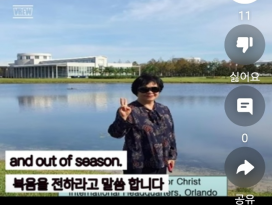 | 주기도문기도운동 | 69137 | 2024년 9월 21일 | |
| 공지 | 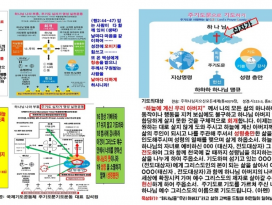 | 주기도문기도운동 | 73991 | 2024년 8월 11일 | |
| 공지 | 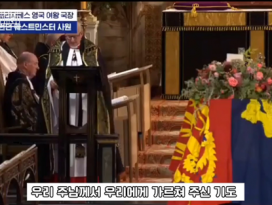 | 엘리자베스여왕장례식주기도 [1] | 주기도문기도운동 | 75886 | 2024년 7월 25일 |
| 공지 | 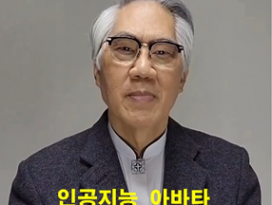 | 주기도문기도운동 | 75588 | 2024년 7월 25일 | |
| 공지 | 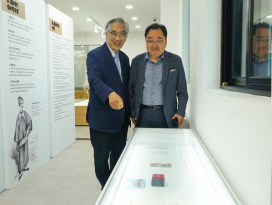 | 주기도문기도운동 | 75548 | 2024년 7월 24일 |
